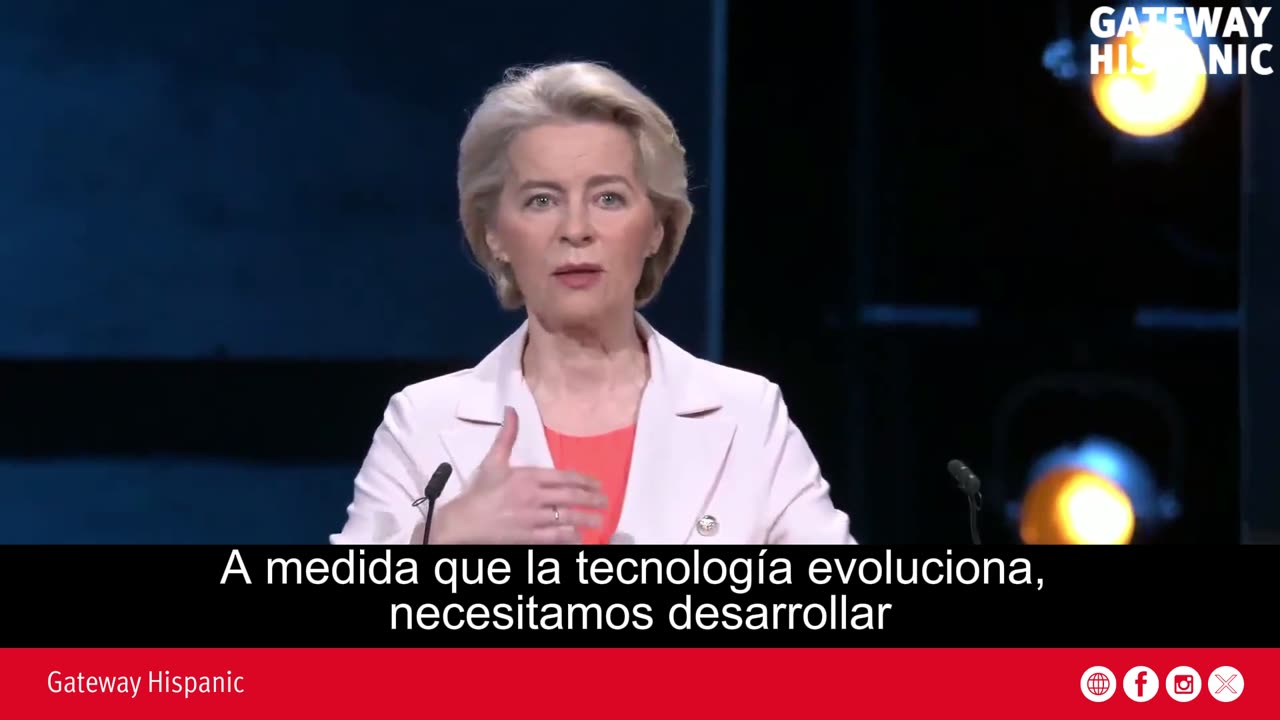Premium Only Content

Do you want to know how German totalitarianism emerged?
Ursula von der Leyen: As technology evolves, we need to develop a societal immunity to information manipulation. Because research has shown that prevention is much more effective than correction. Prevention is essentially the opposite of correction. In short, it’s better to prevent than to cure.
Perhaps, if you think of information manipulation as a virus, instead of treating the infection once it’s already taken hold—that would be correction—it’s much better to vaccinate so that the body is immunized.
Prevention follows that same approach. Because misinformation relies on people spreading it to others. It’s essential for people to understand the influence of malicious information and the techniques behind it. And as awareness grows, our chances of being influenced decrease dramatically. That strengthens society with the resilience we’ll need.
Ursula von der Leyen, President of the European Commission, has faced accusations of a lack of transparency in the procurement of COVID-19 vaccines, particularly regarding contracts negotiated with Pfizer. The scandal, known as “Pfizergate,” revolves around the Commission's refusal to disclose text messages exchanged between von der Leyen and Pfizer CEO Albert Bourla during negotiations for a contract involving 1.8 billion doses, valued at approximately €35 billion.
The Commission claimed that these messages were of a temporary nature and were not preserved, which drew criticism from the EU Ombudsman, who called this lack of transparency maladministration. Furthermore, the General Court of the EU ruled that the Commission had withheld key details of the vaccine contracts, including information about conflicts of interest and payment guarantees, and ordered the disclosure of these documents.
The case has led to an investigation by the European Public Prosecutor’s Office and legal action in Belgium, with more than 1,000 EU citizens joining a lawsuit against von der Leyen. These developments have raised serious concerns about transparency and accountability in the management of public funds during the pandemic.
The resolution of this controversy will be crucial for the credibility of European institutions and the public's trust in their leaders.
-
 1:27
1:27
Gateway Hispanic
14 hours agoWoke parents adopt a parenting style that corrupts childhood
8 -
 LIVE
LIVE
Times Now World
10 days agoLIVE Jeffrey Sachs | Netanyahu Turned U.S. Military Into His Own War Machine | Times Now World
112 watching -
 LIVE
LIVE
PudgeTV
8 hours ago🔵 God of War: Ragnarok - Gaming on Rumble | Rage Inducing Gifted Games End of Week 1
204 watching -
 LIVE
LIVE
SynsFPS
3 hours ago|🔴COD Plays/Fails🔴|
56 watching -
 14:15
14:15
Actual Justice Warrior
1 day agoDemocrat Says Republican Kids Should BE KILLED
33.2K39 -
 10:20
10:20
Zoufry
7 days agoThe Hunt for The Real Life Walter White
13K2 -
 15:10
15:10
Dr Disrespect
1 day agoI FINALLY Beat Baby Steps
105K15 -
 2:38:29
2:38:29
MattMorseTV
17 hours ago $14.21 earned🔴Trump's Counter-Antifa CONFERENCE.🔴
19.4K97 -
 4:34:25
4:34:25
Side Scrollers Podcast
21 hours agoTwitch CEO Testifies in Congress + Hasan Piker Accused of DOG Abuse + More | Side Scrollers
66.3K27 -
 19:54
19:54
Forrest Galante
3 days agoPrivate Tour Of America's Best Marine Animal Facility
93.2K11
